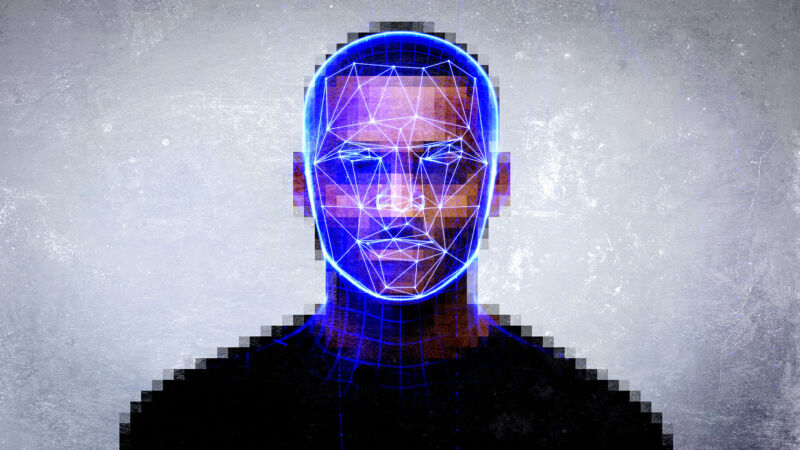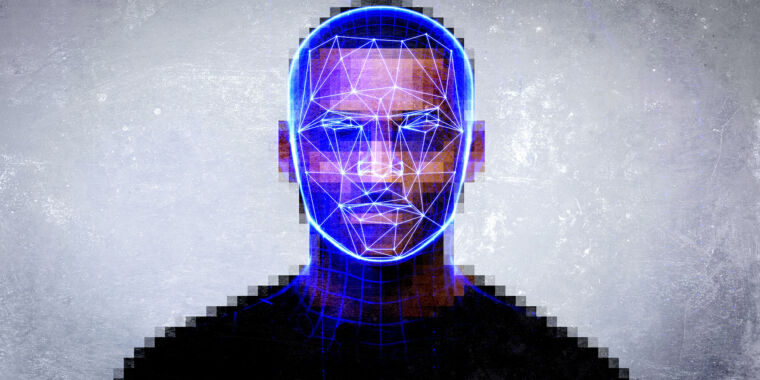
Aurich Lawson | Getty Images
Louisiana police reportedly relied on an improper facial recognition match to obtain warrants for a black man for robberies he did not commit.
Randal Reid, 28, spent nearly a week in jail after the fake match led to his arrest, according to a report published Monday on NOLA.com, the website of the Times-Picayune/New Orleans Advocate newspaper. Reid told the paper he had never been to Louisiana:
Local police stopped Reid on Nov. 25 as he was driving on Interstate 20 in DeKalb County, Georgia, on his way to a belated Thanksgiving celebration with his mother, he said.
“They told me I had an arrest warrant from Jefferson Parish. I said, ‘What is Jefferson Parish?'” Reid said. “I’ve never been in Louisiana for a day in my life. Then they told me it was for robbery. So not only haven’t I been in Louisiana, I’m not stealing.”
Reid was booked as a fugitive at the DeKalb County Jail but was released on Dec. 1, a jail official said.
Reid’s attorney, Tommy Calogero, said detectives from the Jefferson Parish Sheriff’s Office “tacitly” admitted the error and rescinded the warrant, the report said. “I think they realized they were making an effort to make an arrest based on a face,” Calogero said.
“Police could have checked his height and weight”
Describing his time in prison, Reid said he “wasn’t eating, wasn’t sleeping. I think about these allegations. I didn’t do anything because I don’t know what’s really going on. I have the right ID.”
The case reportedly began with a June 2022 theft of more than $10,000 worth of Chanel and Louis Vuitton purses in Metairie, Louisiana. Calogero said it wouldn’t have been hard to determine that Reid wasn’t the culprit, who was allegedly “caught on camera entering numbers from a stolen credit card at the checkout counter” at the store in June.
A birthmark on Reid’s face was one of the differences that eventually forced police to release him, Calogero said. Calogero also estimated a 40-pound difference between Reid and the stock thief he saw on surveillance footage, the Times-Picayune/New Orleans Advocate report said. The perpetrator, unlike Reid, had “floppy arms.”
“The police could have checked his height and weight or made an attempt to talk to him or ask him to walk through his house to look for evidence. He would have complied,” Calogero told the paper.
It is not exactly clear which facial recognition was used in this case. In previous cases, Jefferson Parish Sheriff Joe Lopinto’s office requested facial recognition analytics through the Louisiana State Analytic and Fusion Exchange in Baton Rouge, which uses Clearview AI and MorphoTrak systems, the report said.
Clearview software compares faces to photos on social media and many other sources. “Powered by facial recognition technology, our platform includes the largest known database of over 30 billion facial images drawn from public web sources only, including news media, mugshot websites, public social media and other open sources,” the company’s website says. .
The sheriff’s office denied the paper’s request for a warrant
The Times-Picayune/New Orleans Advocate report indicates that the mistaken facial recognition match led to two warrants for Reid’s arrest. The first was obtained by the Jefferson Parish Sheriff’s Office and the second was for a separate felony being investigated by the Baton Rouge Police Department.
A Baton Rouge Police Department detective then took JPSO’s identification from Reid to secure an arrest warrant claiming he was one of three men involved in another theft of luxury purses at a store the same week on Jefferson Highway, according to court documents,” said the Times-Picayune/New Orleans attorney’s report.
The report said Lopinto’s office did not respond to requests for information and “declined a formal request for the July 18 arrest warrant for Reid and copies of policies or purchases related to facial recognition, citing an ongoing investigation.” The separate warrant obtained by the Baton Rouge Police Department “does not say how Lopinto’s office identified Reid,” the report said.
We’ve contacted the sheriff’s office today and will update this article if we get any new information.
Privacy concerns and evidence of bias in facial recognition systems have sparked a movement to ban government use of the technology. “Facial recognition software is particularly bad at recognizing African Americans and other ethnic minorities, women and youth, often misidentifying or not identifying them, which has a disparate impact on certain groups,” says the Electronic Frontier Foundation.

